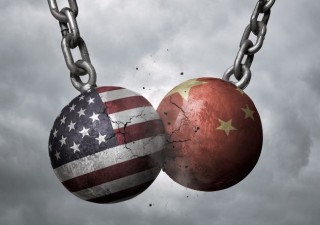India - Pakistan duel over GI right for basmati rice “simmers”
01 December 2020
Pakistan is cooking up its opposition to India’s application for a geographical indication (GI) right over basmati rice in the European Union.
Basmati rice is a fragrant rice variety consisting of long, slender grains. The globally-popular rice is grown in India and Pakistan.
India applied for the GI status in 2018. On September 11, 2020, the European Commission published the application, opening the door for stakeholders to submit their objections to the application within a three-month period.
A GI mark is a badge of premium quality and authenticity, rewarding the product with a higher price tag. A GI-protected product possesses characteristics relating to the region where it is grown.
Indian basmati rice is known for its long grain and distinct aroma. Reports suggest that such aroma and texture come from the Indian soil irrigated by waters from the Himalayan rivers.
On the other hand, Pakistan’s basmati rice is synonymous with its strong aroma, taste and softness.

If the GI status is granted to India’s basmati, it will tell a consumer in the EU that the basmati rice he is purchasing is genuine as it comes from specific regions in India. Only in India.
This development prompted Pakistan, a basmati rice exporter to Europe as well, to start cooking up its objection to India’s claim. On October 5, the country announced it will file its objection with the European Commission.
“As per available reports, basmati rice production in Pakistan’s Punjab is not sufficient to meet the country’s requirements. As a result, the basmati rice production has spilled over to other provinces like Balochistan and Sindh thus leading to the dilution of the exclusivity of the geographical territory. Thus, it may be difficult for Pakistan to prove that it has maintained the exclusivity of its regions cultivating basmati rice,” said Sonal Madan,a partner at Chadha and Chadha in New Delhi.
Madan added that while India passed its GI legislation in 1999 which came into effect in 2003, Pakistan passed its local GI bill only in March 2020 – 10 years after it was first submitted to parliament. Despite this, a registration system has not been effectively established in the country. This would have proven that Pakistan has built up a protection mechanism for its homegrown basmati.
For these reasons, Madan believes that Pakistan does not have very high chances of putting up a strong opposition against India’s application.
But for Sana Shaikh Fikree, senior associate at Vellani & Vellani in Karachi, Pakistan still has credible basis to oppose India’s application even in the absence of a local GI registry.
“Although Pakistan currently does not have a local GI registry, such registry is likely to be constituted under the newly-enacted Geographical Indications (Registration and Protection Act 2020) in the future,” said Fikree.
She added that Pakistan is likely to cite credible evidence in the form of historical data showing export of basmati rice to EU from Pakistan, genetics seed profiling, laboratory analysis, research papers, articles and the like. These data will prove basmati is grown in Punjab, Pakistan as well, according to Fikree.
“Additionally, it will also be pertinent to note that the Commission Regulation (EC) No. 972/2006 of 29 June 2006 laying down special rules of import of basmati rice and a transitional control system for determining their origin recognizes Trading Corporation of Pakistan (Private) Limited as one of the authorities for the issuance of authenticity certificates as required under Article (2)(2)(b) of such regulations,” she added. “Pakistan is likely to rely on such regulations as they expressly recognize Pakistan as one of the countries growing basmati rice.”
.jpg)
To start with, India’s application appears to be flawed, according to Fikree.
“As per the publication of India’s application for basmati rice as a GI in the EU’s official journal, while India has claimed that ‘Basmati is a special long grain aromatic rice produced in a particular geographical region of the Indian sub-continent,’ India has not expressly or otherwise referred to the areas forming part of Pakistan where basmati is grown. Given the above scenario, India’s claim with respect to basmati appears to be a flawed one as it gives an incomplete picture regarding the geographical areas where basmati is grown,” Fikree explained. “Omission on India’s part to mention the areas of Pakistan where basmati is grown appears to be deliberate and could be seen as an unjust attempt to claim exclusivity with respect to basmati rice.”
India takes a 65 percent slice of the world’s market for basmati rice. Pakistan may have a smaller share but its exports to the EU have significantly increased in the last three years. From 120,000 metric tons by August 2017, its rice exports jumped to almost 300,000 metric tons by August 2019, according to the European Commission.
Since 2018, the country has cut down the level of pesticides it uses for agricultural goods it exports to the EU. India’s rice producers’ on the other hand have failed to comply with EU standards on pesticide use, leading to decreasing exports of basmati rice to the EU.
“The Indian government is taking measures to ban certain pesticides taking cue from the European Union. While a number of crop protection molecules proposed to be banned are in use in other developed countries, the Indian government is trying to comply with the EU standards on pesticide use to boost sales in the EU,” said Madan. “Therefore if India succeeds in obtaining the GI tag for its basmati rice, it shall enable the Indian industry stakeholders to reclaim their lost position in the global rice industry.”
And what if it doesn’t?
“India could still ensure its dominance in the European market by rectifying its usage of pesticides to meet the EU standards. On the administrative level, the Indian government is likely to take all possible steps to defend its position as has been seen in the past disputes,” said Madan.
The three-month period during which objections to India’s application for the GI mark shall be filed will be followed by a two-month period during which Pakistan may present its grounds for opposition.
Espie Angelica A. de Leon






